I arrived in Lebanon a Wednesday after few hours of flight. I was happy not having to carry Marcel with me and felt much better and lighter not having to worry about it.
I straight met Wael, who was waiting for me at the airport. 1 hour later I was arriving at Bukra Ahla center (better tomorrow), the place I was about to work at the coming two months.
 Here myself and the other volunteers coming from all over the place were working on behalf of the SB Overseas organization, a Belgian NGOs providing help for the displaced people and refugees of the area.
Here myself and the other volunteers coming from all over the place were working on behalf of the SB Overseas organization, a Belgian NGOs providing help for the displaced people and refugees of the area.

“SB” was operating in Belgium, Turkey and Lebanon and had three centers in the country; one in Beirut nearby the overcrowded Shatila refugee camp, one in Saida in the biggest refugee shelter of Lebanon and another in Arsal in the Beeka valley next to the Syrian border where thousands of people where stuck…
I was affected in Beirut were I started teaching English, science and math every day.

The first week was mainly spent on getting used to the workload and meeting the people. Akshita, Sophie, Malena, Juliette, Abdullah and the other members of the center I was about to work with.
I was given a class to teach to and a curriculum to follow.
As far as I can remember, the teaching work was always something we were doing alongside the volunteering work, but now, this was the volunteering work by itself and it meant a completely different thing.
As I was already aware of the importance of education for the future of people (introduced at the salam school in Gaziantep two years ago and later in many other places…) I knew that the point here was much more than simply sharing knowledge.
It was about teaching the people empowering skills to help them in their future life. 
More than this SB Overseas was somehow filling the education gap that 7 years of war was creating.
The NGO was based in Belgium but was operating in the most crucial places: Turkey and Lebanon, to support the Syrian refugees.
Here, in Lebanon, the organization was working in three specific places: the capital Beirut, near the Shatila refugees camp; the Ouzai shelter of Saida, the biggest of Lebanon, and, in the surrounding of Arsal, the last city before Syria, where international volunteers were forbidden due to security reasons.
These kids, youth and women we were teaching to wouldn’t be able to go to the overwhelmed Lebanese schools (already receiving more Syrian than Lebanese kids) and Bukra Ahla center was somehow their only access to education.
Then the workload was impressive (and I’d lie telling I was the busiest teacher as I had to save time besides of the teaching work for the other parts of my work here).
The situation here reminds me the one in Turkey with the difference that in Lebanon, the hundreds of thousands of refugees were packed in a much tinier country.
Moreover, the state was at the crossing between several unstable countries such as Syria, its direct neighbor, Palestine, Israel and other bigger players of the area like Saudi Arabia and Iran which were involved in a Proxy war for a long time fighting to take over this piece of land.
But not only coming from outside, the instability came also from internal movements.
I’d say that, like two years ago in Turkey, you could fell that something was moving in the country, something intangible and blurry, but ready to burst anytime.
But still, this context didn’t affect the way we were operating. Here in Beirut nearby Shatila refugees camp, the work was tremendous.
The camp (more a slum than a camp, as it was built some 65 years ago for Palestinian refugees and was now a city ”in the city”) was supposed to host 3000 people, however, up to 50000 were living there, stuck like sardines in this tiny overcrowded space. The Bukra Ahla center was providing help to as many kids youth and women as possible, though we knew that it was just impossible to help everyone.
Every single day, hundreds of kids were coming to follow the classes. Separated in 3 shifts, the teachers were giving English, Science and Maths lessons alongside the Arabic lessons provided by the crew of the center.
It was all but easy to teach there, some kids barely knew how to write (even in Arabic) while some other had already good bases in English. Then we had to adjust our teaching plans regarding our students.
From handwriting lessons to phonics, listening practice to speaking, writing and reading … we had to cover all basics of the English language.
And I was lucky enough to be given one of the smartest class. I’d never forget the class Grade 1 – AE where I found some of the cutest kids ever. From the lovely Ali and Mohammad, the sweet and girlish Rouaa, Amouna and Kawthar passing by the nasty Walied and Moutaz … These twenty kids were making every single day an attraction.
Teaching them was an intense circus made of both, chaos, laugh and knowledge. It was everything but a quiet process and I felt like managing a bunch of cats and dogs put all together in the same space … a wilderness hard to contain sometimes. A harsh and fragile humanity, exploding sometimes in tears, in fights or laughs …
Another part of my job here was to document the work of the organization. I have been sent to the different areas where SB was operating and could realize how important the organization was for the people.
In Saida a little town in the south coast, the school was within the ouazi shelter, a huge disaffected school building were thousands of people were packed. The place was a mess, a ruin…
Everything but a space you would like to live.
Nonetheless, the refugees were based here and were living in harsh conditions for several years.
This is in this context that the organization opened the school in the shelter. It was a huge work. A difficult one… As Kevin, the director of the place told me. Having to deal with proximity, diseases, violence etc… was part of the daily work of the staff there and I assume their tasks were twice harder than ours.
But SB was also working in Arsal, a remote city in the Lebanese mountains bordering Syria. Arsal was in the beeka. I went to the valley before and found what I knew was happening there… Thousands of people scattered here and there all over the place, living in tents and shelters just as bad as you could expect.
Informal camps were popping up around the villages and you could barely tell how numerous were the people living there… But as far as I knew around 2 millions Syrians were in the country. That’s were SB was also trying to support the hard life of the people in needs.
In Arsal, their space was located in one of the many ”camps” surrounding the city. Here the population was bigger… The city was basically just a rock thrown away from the Syrian border and most of the people there couldn’t pass the checkpoint as they were ”clandestine”.
For these reasons, and also because of the tensions in the area between several armed groups, the place was controlled by the army which made the access to the location more difficult.
There, the school was located in a small building neighboring the tents. The space was composed of the rudimentary material, just enough to keep the school running… Chairs, desks, boards one bathroom and rhalass …
You could tell by tasting the ambient temperature that the people there, both the staff and the students were freezing. The temperature in the mountains was really cold and walking through the camp you could see that nothing was prepared to pass the winter, to support the cold, the wind and the snow… And still, the place was the busiest. 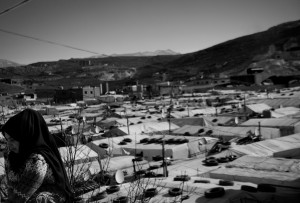
Every day 140 kids were coming to the school to learn French, science, maths and Arabic… I felt that was the place where help was the most needed and I’m sad not to be able to work here.
But we had enough work to keep us busy in Beyrouth anyway.
 Between the classes, the video works, the donations and distribution works,
Between the classes, the video works, the donations and distribution works,the Christmas and new year’s eve
events, the art projects and the peer exchange that I was continuing between my French student and the Shatila’s youth … 
the two months I spent around the country have been as busy as usual.
So far, I’d say that it’s been one of the most important works I’ve been doing. One of the most useful and rewarding. I met some of the best people I ever know and being struggling with everyone, trying to work out something bright for the next generation, was something beautiful and life-changing.
Yes, the situation is bad, yes there’s despair, struggle and harness. Yes, the country is unstable but it’s also what’s making it such a lively place full of contrast and diverse stories.
And I feel sad leaving the persons I love to carry on further in Jordan.
But yes I’ll return to Lebanon and I’ll stay there … It’s just a matter of time.
 Back from Lebanon, I went straight to Alessandro and Faten. My bag was full of drawings from bukra ahla to give to the kids of one friend’s school in the capital. Being back from the middle east wasn’t easy. There, I was working full time from morning to evening, here in Tunisia, everything was going back to slow mode. .. the people, the projects, the work … everything. ..
Back from Lebanon, I went straight to Alessandro and Faten. My bag was full of drawings from bukra ahla to give to the kids of one friend’s school in the capital. Being back from the middle east wasn’t easy. There, I was working full time from morning to evening, here in Tunisia, everything was going back to slow mode. .. the people, the projects, the work … everything. ..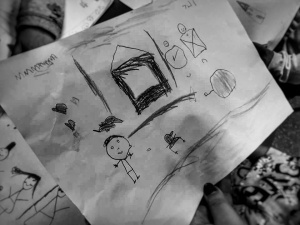
 I again meet the censure, the undercovered mindset which tells you what to do, what to say, what to think etc. ..
I again meet the censure, the undercovered mindset which tells you what to do, what to say, what to think etc. ..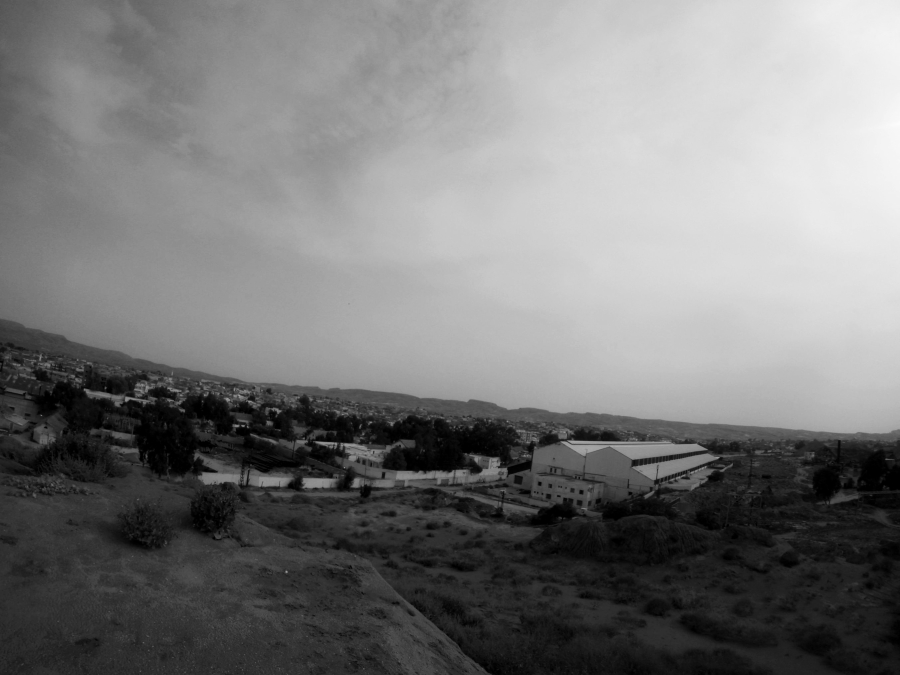



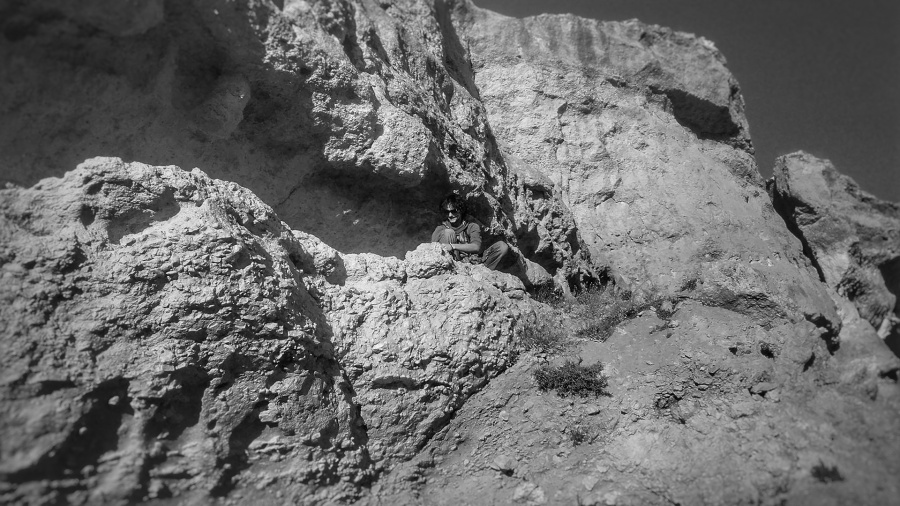
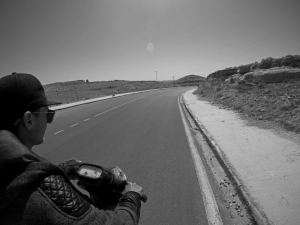


 It’s been an intense week, going from place to place, talking to people and working with the kids creating with them the first step of the connection I was trying to do with the other school.
It’s been an intense week, going from place to place, talking to people and working with the kids creating with them the first step of the connection I was trying to do with the other school.
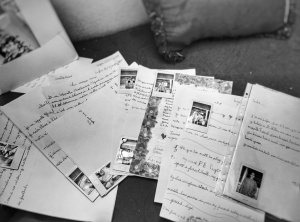





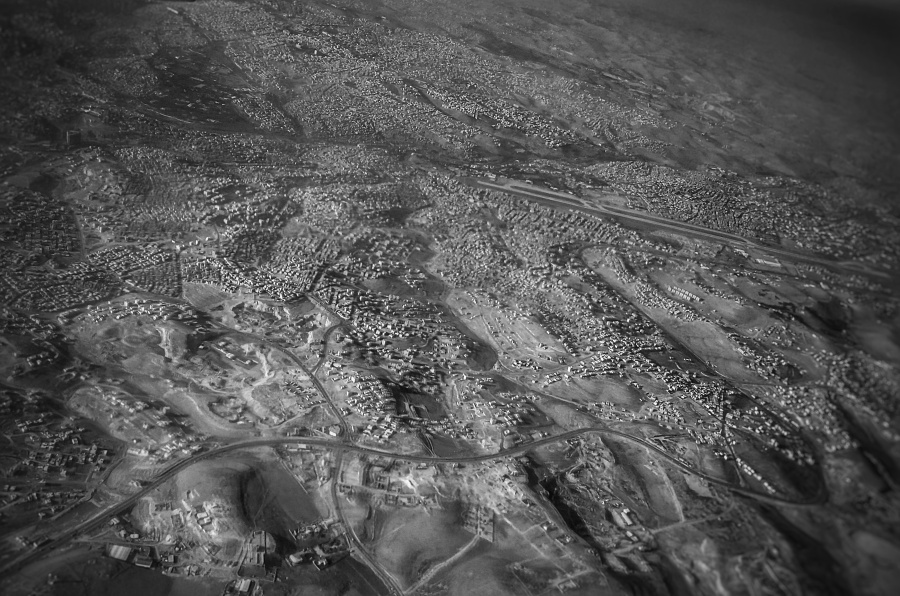
 Here in Jordan, I get to know a completely different situation than in Lebanon.
Here in Jordan, I get to know a completely different situation than in Lebanon.

 There we were mainly teaching Iraqis and Syrian but the help was also directed toward the other, less covered refugee populations.
There we were mainly teaching Iraqis and Syrian but the help was also directed toward the other, less covered refugee populations. Every day 30 to 40 people were coming to the center for diverse services (social help, food vouchers, classes, psychological help, administrative support, kids after school clubs and activities etc …).
Every day 30 to 40 people were coming to the center for diverse services (social help, food vouchers, classes, psychological help, administrative support, kids after school clubs and activities etc …).


 Here myself and the other volunteers coming from all over the place were working on behalf of the SB Overseas organization, a Belgian NGOs providing help for the displaced people and refugees of the area.
Here myself and the other volunteers coming from all over the place were working on behalf of the SB Overseas organization, a Belgian NGOs providing help for the displaced people and refugees of the area.




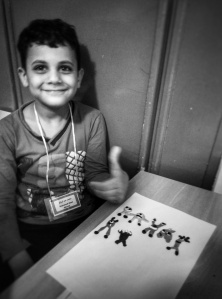



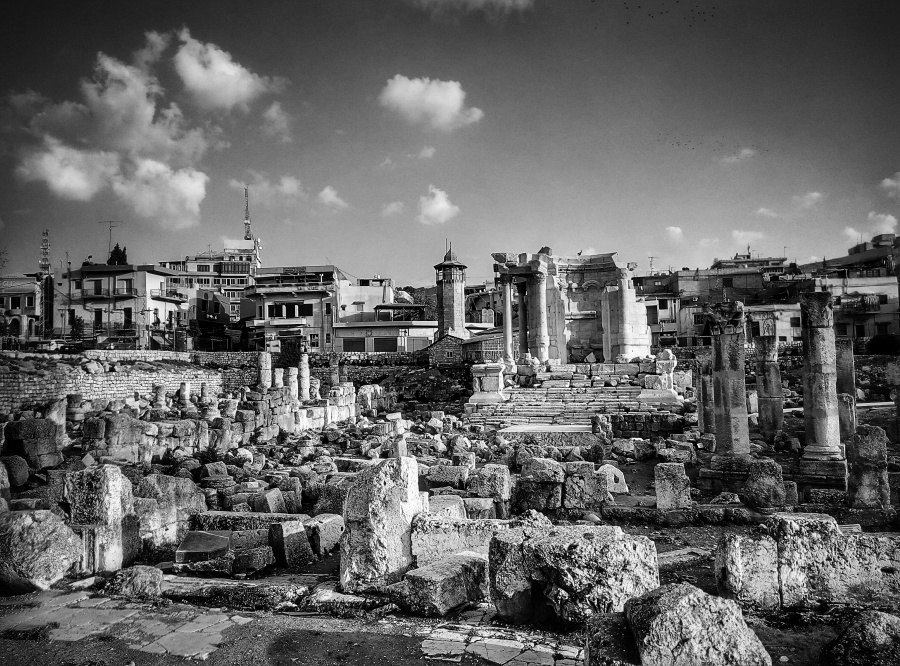



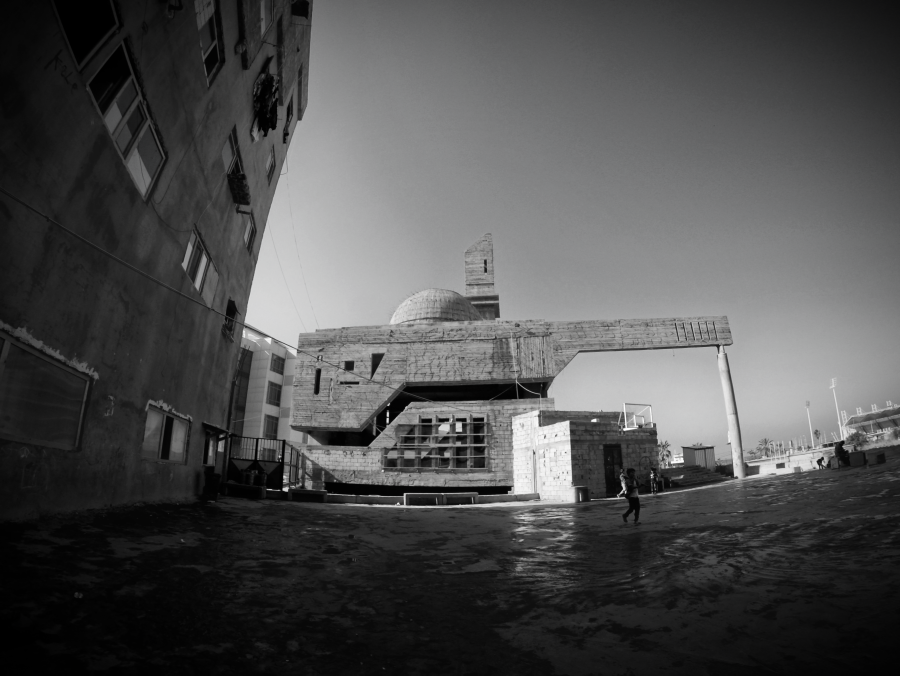




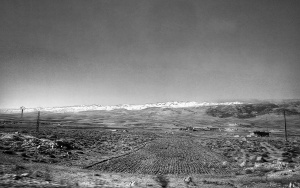


 Between the classes, the video works, the donations and distribution works,
Between the classes, the video works, the donations and distribution works,




 Elodie and I introduced the peer exchange project to two classes in the Valentin high school of Valence, then I left first for Genoa in northern Italy where I went back to meet Luca, a friend with whom I was working at the Genoa University of sociology.
Elodie and I introduced the peer exchange project to two classes in the Valentin high school of Valence, then I left first for Genoa in northern Italy where I went back to meet Luca, a friend with whom I was working at the Genoa University of sociology.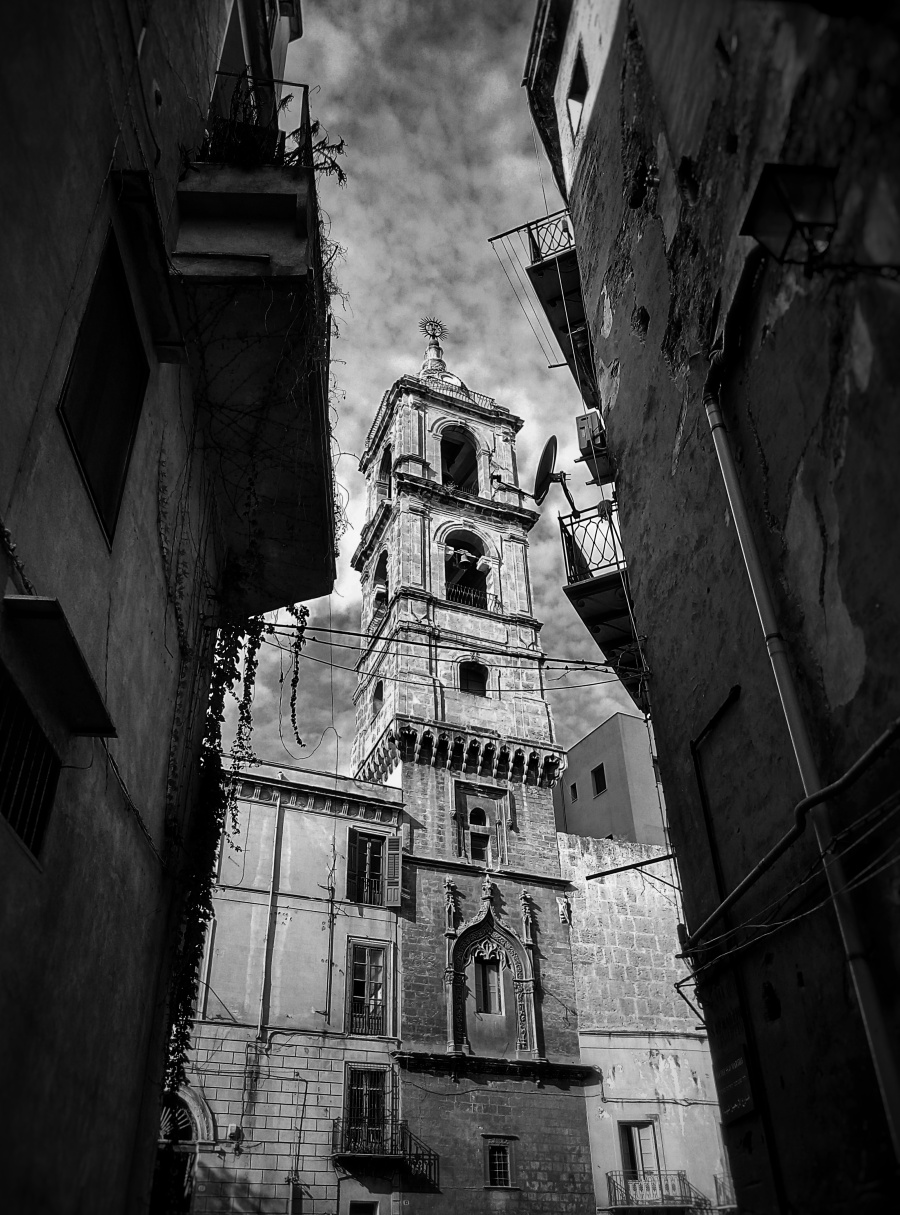














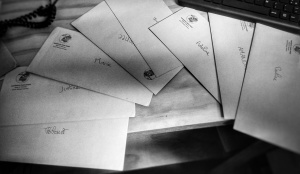




 With Elodie, Cecile and few other good and active people of the region, we ran a couple of these conferences to raise awareness across the students and it was so successful that we start building a long term collaboration to continue to have a link with the school and to run this interaction for the year to come.
With Elodie, Cecile and few other good and active people of the region, we ran a couple of these conferences to raise awareness across the students and it was so successful that we start building a long term collaboration to continue to have a link with the school and to run this interaction for the year to come.



 Miksaliste est une ancienne salle de concerts utilisés pour les festivals d’été dans le quartier des quais de Belgrade où se basait la majeure partie de la vie culturelle de la ville. De nos jours, le gouvernement Serbe reconstruit le quai d’une manière totalement différente, avec des auberges de jeunesse “hype”, des hôtels de luxe et tout une gamme de merdes excessivement chères …
Miksaliste est une ancienne salle de concerts utilisés pour les festivals d’été dans le quartier des quais de Belgrade où se basait la majeure partie de la vie culturelle de la ville. De nos jours, le gouvernement Serbe reconstruit le quai d’une manière totalement différente, avec des auberges de jeunesse “hype”, des hôtels de luxe et tout une gamme de merdes excessivement chères …  Le camp est placé directement au milieu de cette zone sur un espace carré qui pourrait recevoir environ mille personnes.
Le camp est placé directement au milieu de cette zone sur un espace carré qui pourrait recevoir environ mille personnes. Les étagères de stockage, les conteneurs qui étaient censées accueillir des artistes étaient maintenant utilisés comme des douches, des toilettes, etc. qui servaient à recevoir les personnes dans les besoins.
Les étagères de stockage, les conteneurs qui étaient censées accueillir des artistes étaient maintenant utilisés comme des douches, des toilettes, etc. qui servaient à recevoir les personnes dans les besoins.



 Pendant les derniers mois, je me suis habituée à ce travail, en préparant du thé, du café, du tri, de la nourriture, etc . «seuls l’endroit et les gens changent, le travail est toujours le même …»
Pendant les derniers mois, je me suis habituée à ce travail, en préparant du thé, du café, du tri, de la nourriture, etc . «seuls l’endroit et les gens changent, le travail est toujours le même …»  En disant cela, je me rendais compte de ce que j’avais fait pendant les 7 derniers mois, et j’étais en quelque sortes prêtes à faire face à tout type de situation.
En disant cela, je me rendais compte de ce que j’avais fait pendant les 7 derniers mois, et j’étais en quelque sortes prêtes à faire face à tout type de situation.  Ensuite, même si le travail était encore difficile, même s’il était toujours troublant et pénible de voir ces personnes qui luttent pour survivre, j’étais maintenant confiant pour gérer l’ensemble de ce processus d’aide.
Ensuite, même si le travail était encore difficile, même s’il était toujours troublant et pénible de voir ces personnes qui luttent pour survivre, j’étais maintenant confiant pour gérer l’ensemble de ce processus d’aide. 
 Et je dirais que le bénévolat dans le camp de miksaliste a été l’une des parties les plus faciles du voyage.
Et je dirais que le bénévolat dans le camp de miksaliste a été l’une des parties les plus faciles du voyage. C’est peut-être venu des gens qui m’entourent, une ribambelle de Serbes et d’autres volontaires internationaux qui se sont autant impliqués que moi, un paquet de volontaires venus des quatre coins du globe.
C’est peut-être venu des gens qui m’entourent, une ribambelle de Serbes et d’autres volontaires internationaux qui se sont autant impliqués que moi, un paquet de volontaires venus des quatre coins du globe. Nous travaillions tous ensemble tous les jours et passions la majeure partie de notre soirée à siroter et à parler au café mikser ou au KC Grad Club. D’une certaine manière, nous Étions tous sur la même longueur d’onde, tous énervés par les horribles nouvelles de la fin des routes des Balkans, tous essayant de comprendre quelle était la meilleure façon d’aider …
Nous travaillions tous ensemble tous les jours et passions la majeure partie de notre soirée à siroter et à parler au café mikser ou au KC Grad Club. D’une certaine manière, nous Étions tous sur la même longueur d’onde, tous énervés par les horribles nouvelles de la fin des routes des Balkans, tous essayant de comprendre quelle était la meilleure façon d’aider …  Finalement, je pense que la ville a joué un grand rôle dans mon expérience car il y avait toujours quelque chose à faire, toujours quelqu’un à rencontrer et j’ai même trouvé le temps de m’amuser à faire quelque chose qui n’est pas lié à la crise …
Finalement, je pense que la ville a joué un grand rôle dans mon expérience car il y avait toujours quelque chose à faire, toujours quelqu’un à rencontrer et j’ai même trouvé le temps de m’amuser à faire quelque chose qui n’est pas lié à la crise …


 J’ai même découvert que la ville était le point d’arrivée de nombreux autres réfugiés et demandeurs d’asile tels que bosniaques, Kosovars, albanais … (Les populations qui souffrent encore de la chute de la Yougoslavie et de la guerre des Balkans des 90″),
J’ai même découvert que la ville était le point d’arrivée de nombreux autres réfugiés et demandeurs d’asile tels que bosniaques, Kosovars, albanais … (Les populations qui souffrent encore de la chute de la Yougoslavie et de la guerre des Balkans des 90″),  mais aussi Ukrainien, Russe, les Iraniens et d’autres personnes qui fuyaient le gouvernement de leur pays pour une quelconque raison, plus souvent en raison du manque de droits de l’homme, de conflits religieux et sociaux ….
mais aussi Ukrainien, Russe, les Iraniens et d’autres personnes qui fuyaient le gouvernement de leur pays pour une quelconque raison, plus souvent en raison du manque de droits de l’homme, de conflits religieux et sociaux ….